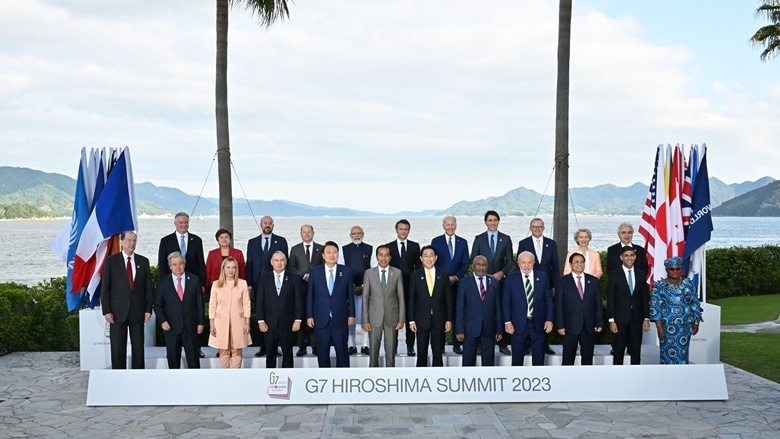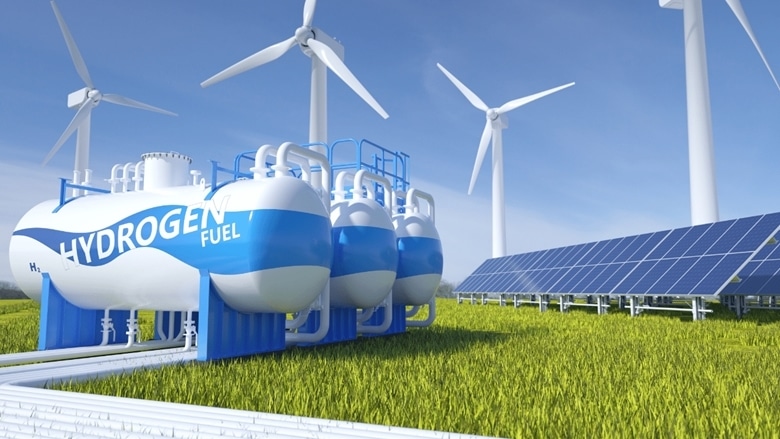
Under the theme “Common Endeavor for a Resilient and Sustainable Planet” the meeting held on May 20, 2023, as part of the expanded G7 Summit, focused on discussing crucial topics such as climate change adaptation, sustainable energy transition and environmental protection. During the meeting, Prime Minister Pham Minh Chinh delivered a speech affirming that, in recent years, Vietnam has been implementing various comprehensive measures in the field of energy transformation, and green energy growth, which have been highly regarded by the international community. Vietnam also reaffirmed its commitment to actively pursue sustainable development, climate change adaptation, emission reduction, energy transition, and the determination to achieve net-zero emissions by 2050. In addition, Vietnam expressed support for Japan’s “Asian Net Zero Emissions Community” (AZEC) initiative and proposed that G7 countries and partners continue to assist Vietnam in implementing the Just Energy Transition Partnership Agreement (JETP) in a substantial and effective manner. This support aims to assist Vietnam in maximizing its potential and advantages, becoming a regional renewable energy hub, and deeply engaging in energy-efficient and circular industrial production chains.
The declaration of the expanded G7 Summit and the commitment to continue accelerating the implementation of COP 26 have created numerous opportunities, motivations, and challenges for scientists and innovators worldwide, including Vietnam regarding research and application of new technological solutions for energy transition and emission reduction.
It is common knowledge that the primary causes of climate change and global warming are the emissions of internal combustion engines in various modes of transportation such as automobiles, trucks, vessels, other machinery and airplanes which are primarily powered by fossil fuels (gasoline, diesel, and gas).
After extensive research and experimentation, KOGI Group (a Vietnamese research group based in Vietnam and abroad) has developed a brand-new technology to generate renewable hydrogen gas which has numerous superior advantages compared to existing methods and other inventions and innovations worldwide (eliminating the need for input material planning, eliminating harmful emissions generated in the engine’s combustion chamber such as NOx, CO, CO2, SO2 exceeding Euro 6 standards; enabling thorough combustion and prolonging fuel burning time; maintaining optimal combustion chamber temperature; not requiring additional energy support sources; cleaning carbon from the engine and prolonging engine life) applicable to all types of internal combustion engines (gasoline, diesel, and gas)…
This technology invention by the KOGI Group has been successfully tested in practice, applied to a wide range of internal combustion engines, and registered for global intellectual property protection (WIPO/PTC, USA, Japan, etc.). This technology by the KOGI Group is one of the practical solutions contributing to the effective implementation of COP26 and the joint declaration of the G7 Summit regarding energy security, sustainable development, climate change adaptation, emission reduction, and energy transition, aiming to build a peaceful, stable, prosperous, and sustainable world. The technical solution provided by the KOGI Group is not only scientifically sound and highly applicable but also cost-effective for end users of vehicles.

To have the patented product mass-produced and widely used globally, besides the efforts of scientists, entrepreneurs, overseas intellectuals, the timely support from the leadership of the Vietnamese Government and governments around the world is crucial, particularly the assistance and favorable conditions in all aspects between the Vietnamese and Japanese Governments (mechanisms, policies, capital, taxes, land area, locations for research, production, and installation facilities) within the program to enhance cooperation between the two governments in science, technology, innovation, research and development; semiconductor manufacturing, new energy (such as hydrogen), renewable energy, etc.
Leveraging the role of overseas Vietnamese people, especially with the support of intellectuals and businesspeople in Japan, The Business Association of Overseas Vietnamese (BAOOV) has proposed and gained collaboration from leading Japanese industrial corporations to work with KOGI Corporation in researching, validating, and widely applying KOGI’s new invention in the field of producing new energy sources and renewable energy worldwide in order to fulfill the commitment of achieving zero emissions by the mid-century.
The invention by the Group holds not only scientific significance but also deep political implications, affirming that Vietnam possesses the potential, strength, and capacity to integrate deeply into the international community. It contributes significantly to the collective efforts of the international community in maintaining peace, stability, and promoting economic development on the basis of equality, mutual benefit, and in line with the interests of developing countries. Moreover, it serves as a practical activity that further enhances the strategic partnership between Vietnam and Japan on the occasion of the 50th anniversary of the establishment of diplomatic relations (September 21, 1973 – September 21, 2023)./.
The United Nations Conference on Climate Change (COP) is an annual conference held under the framework of the United Nations Framework Convention on Climate Change (UNFCCC). It serves as the official gathering of the parties to the UNFCCC to assess the progress in addressing climate change. At the COP26 conference, Vietnam, along with 196 other countries participating in the United Nations Framework Convention on Climate Change, adopted the Glasgow Climate Pact. Nearly 150 countries committed to achieving net-zero emissions by the mid-century. Additionally, over 100 countries pledged to reduce global methane emissions by 2030 compared to 2010 levels, while 141 countries participated in the Glasgow Leaders’ Declaration on forests and land use. Furthermore, nearly 50 countries joined the global statement on the transition from coal to clean energy.
Peter Hong
Member of the Vietnam Central Fatherland Front,
Permanent Vice President, General Secretary of the Business Association of Overseas Vietnamese




